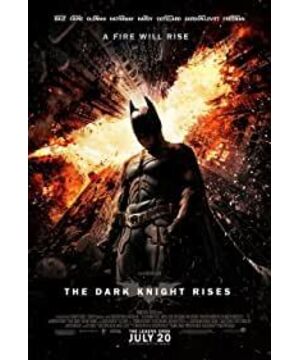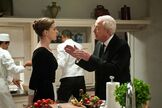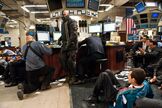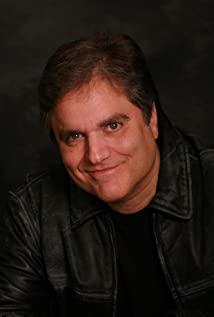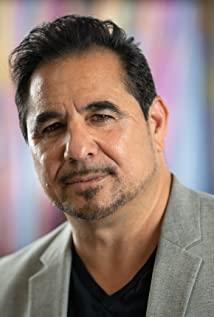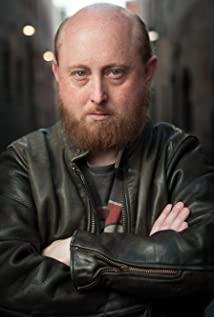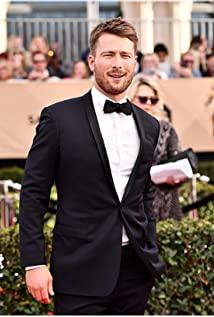This is of course a story about Batman. This is particularly evident in the first and third installments. In the ending chapter, the audience saw the return and ending of Batman, saw Robin and Catwoman, saw how the dark knight made a great and moving hero with strong willpower, and saw a movie of Hollywood The indispensable humorous passages, ups and downs and violent spectacles for blockbuster films.
However, this is another story that is more than just telling Batman. Nolan's special and great lies here. While portraying Batman, he constructed a "Trilogy of Crisis of Western Civilization".
BATMAN BEGINS discusses the personal choices and crises of beliefs in Western civilized societies. The protagonist Bruce Wayne's character setting is full of extremes: hundreds of millions of fortunes, and the murder of his parents (rich wealth and barren emotions are people's main criticisms of Western material civilization). The main line of the story is that Bruce’s personality was initially held hostage by hatred and anger. Later, he received cruel training from soul to body in the “East” (a very Orientalist narrative), and finally returned to Western freedom through moral self-discipline choice. Road of ism.
DARK KNIGHT is obviously much more complicated. JOKER, the soul of the play, through the exposing of the polite, the interpretation of order and chaos, and the layered deconstruction of "reciprocity", the audience is forced step by step into moral and ethical dilemmas and even desperate situations. The film continues the controversy about "justice" in the Western world for thousands of years, and at the same time elaborates the political view of anarchism in detail.
At TDKR, Batman/Western civilization's opponent appears as a kind of heterogeneous power of "other". It is true that this ideology was born within Western civilization, but it has clearly developed into an independent force-the revolutionary force of Marxism. The Batman series has thus fully entered the social-political level from the personal-moral level.
Please think about two weird arrangements
in the movie : 1. Why is the rebellious character "Bain" in this movie so boring compared to JOKER?
2. Why do ordinary citizens of Gotham Town collectively absent from the second half of the film?
In my opinion, Nolan's design and handling of these two plots implicitly interpret the political connotation of the film.
First of all, talk about the difference between JOKER and Bain.
I suspect that the main reason why many viewers think that the third is inferior to the second is because Bain is inferior to JOKER. Compared with JOKER’s evil light, Bain has no personal charm: his image, in most Hollywood blockbusters, is usually just a thug who flashes in front of the camera; the mask of unknown shape also makes People accept incompetence.
How could this be? With Nolan's screenwriting and director abilities, it shouldn't be a problem to launch an impressive contradiction; no matter how good Heath Langer is, the gap between Tom Hardy and Tom Hardy should not be so big.
So, why exactly?
The answer is probably: Nolan deliberately did it. He deliberately and deliberately created such a completely "disenchantment" contradiction.
JOKER is evil, but this evil belongs to an evil derived from within Western civilization. He is the snake that caused humans to be driven out of the Garden of Eden, the Satan who tempted Jesus in the wilderness, the Mephistopheles who tricked Faust into selling his soul, and the Moroati who made Holmes exhausted. Just like the classic contradictions in all western traditional cultural narratives, JOKER has superior IQ, resourcefulness, surprising success, and has a set of values that can always justify itself. He and Batman, who are in their prime, are a match made in heaven.
Bain is completely different from JOKER. JOKER tortures Batman's moral principles, and at the same time carries the ambiguous "you complete me"; while Bain's emotions towards Batman are pure hatred, and the specific object of hatred is Batman's birth and wealth. He is also evil, but this evil is a revolutionary evil.
And since it is about revolution, the protagonist of the revolution should be the mob, not the individual elite. Therefore, Bain will not have a personalized style of words and deeds, nor will it appear alone. Did you find it? Whether it is Batman or JOKER, they are good at and even emphasize single-handedly and alone (individualism), and Bain, even when he "singles" with Batman, has colleagues around him (collectivism).
In fact, Bain can almost be seen as the opposite of JOKER (The Opposite); in contrast, Batman is just the opposite of JOKER (The Inversion). JOKER is thin (remember the scene in which he wears a nurse's uniform?), Bain is majestic and tall; JOKER is eloquent, and Bain’s language is vague; JOKER has a big grin, and this part of Bain is Masks cover; JOKER only uses his brain but not his hands, and Bain can beat Batman to the point...Since the opposition to the other is to be established, Orientalist narratives are naturally introduced into it, and Bain successfully "de-modernizes" it. It is firmly nailed in the narrative logic of "Orient/Revolution/Class".
To be honest, the distinctive "class nature" of this movie was beyond my expectation. Like many people, I think "class" is an outdated concept; but perhaps because of recent events such as the international financial crisis and "Occupy Wall Street", discussions about this have surfaced again. This proves once again that some of Marx's theories cannot be easily discarded.
Gotham Town in the film is obviously a society built on the opposition between the oppressive class and the oppressed class. Here is an example of one of my personal favorite related representations: the "come back" Batman drove the extremely windy "Bat" mount from the sky to rescue the catwoman in trouble. Baine (standing amongst a group of thugs, unsurprisingly) glared at all of this, with surprise and admiration in his eyes; what separates him and Batman is the class-determined technology, resources, wealth, Talent, charm, and other insurmountable differences.
So, what is Nolan's political position? Is this film really a "counter-revolutionary" film as criticized by some people?
There is no doubt that the revolutionary imagery that is visible or lurking is all over the film: the warning that the catwoman at the charity party spit out in Bruce’s ear "a storm is coming" has been repeated countless times in the past few hundred years. The revolutionary declaration by Bain; the passage in which Bain led his people to invade the stock exchange is a dramatic expression of "Occupy Wall Street"; the distinction between "cities on the ground" and "underground world" is an old-fashioned class rhetoric; the plot to release political prisoners is a living thing The "capture of the Bastille" reappeared; the two choices given in the trial-death penalty or exile, and the icy world that appeared during the exile, people can't help but think of the "Great Purge" of the Soviet Union in the 1930s...
I personally admire the scene of the big bang in the city. The director did not use slow-motion, close-ups and other Hollywood blockbusters to depict similar scenes, nor did he use casualty scenes to carry out any sensational narratives; instead, he gave a long-term perspective, allowing the audience to look down on all beings. Observe the blossoms everywhere in Gotham Town from the perspective. The scope of the explosion is so wide, but the strength of a single blast is not too strong, there is no end-of-life scene, and there is no horrible atmosphere, and some are just serial, dense, "bottom-up" blasting-naked, video The revolutionary definition of the way.
However, starting from the middle of the film, Nolan did one thing: stealing the lead. Later, through various metaphors and clarifications, he tried to remind the audience: What Batman is fighting against is not a real revolution.
Nolan’s tips include:
First, it is not the 99% of the citizens who want to occupy Wall Street to make a revolution with Bain, but his underground army and more than a thousand criminals. The subject of the revolution has become the "rogue proletariat" that Marx himself does not want to recognize.
Second, the judge on the trial bench was actually the "scarecrow" in the first part-the first spokesperson sent by the Shadow Warrior Alliance to Gotham Town. This is a foreshadowing of the plot that followed, and it also satirizes the usurpation of power in the Great Revolution.
Third, Nolan told the audience through FOX that the neutron bomb would explode anyway, and Bain clearly knew this too. So the nuclear bomb cannot be interpreted as a symbol of authoritarianism, and so-called communism has been completely replaced by extreme terrorism. After all, the purpose of the revolution is to destroy the old world and create a new world, not "you die and you die."
And the most important reminder is related to the second question I raised earlier: the absence of the people.
The exit of ordinary citizens of Gotham Town appeared after the city's explosion. Under the deterrence of Bain's force, the media reporters (representatives of the middle class) who came to report fled in all directions; the panicked group of people in the rugby auditorium will hardly be found in subsequent chapters. In fact, in the last hour of the film, the audience saw only the state apparatus represented by officials and police, the reactionary mob represented by Bain, and the independent third party represented by Batman. In addition, the only "ordinary citizens" that appeared were a group of orphans and a priest-those who could be easily depoliticized. Remind everyone to pay attention to one detail: Black/Robin picked out a few orphans and asked them to knock on the doors of ordinary citizens from house to house and take them to escape together; but the film did not show these citizens, none of them-I believe this is definitely not the case. The negligence of the director/screenwriter.
And how can a revolution without the people be called a revolution?
The story finally came to an end. Through an unexpected plot reversal, this so-called "revolution" was stripped of its last coat. It turns out that the ultimate dark power is the Kagemusha Alliance in the first book. Its ideological system is not based on the "Communist Manifesto", but directly derived from the statement of Jehovah in the "Old Testament"-if a city has been corrupted to a certain extent, It should be destroyed. It turns out that "revolution" is just a disguise, or more precisely, just a tool. From this perspective, although this reversal is bloody, it is not only a need for Nolan to round out the Batman story, but also a theoretical and logical necessity.
Here, our Batman can finally come out to save the world. His enemies are familiar to him; the values of his enemies are something he can firmly oppose. More importantly, he finally has the possibility and rationality of defeating such enemies; if the opponent is a real people's revolution, he will never be able to fight against it as an individual. Don't forget that Nolan came from England, where Adam Smith and Keynes were born, and Marx and Engels were also brewing.
Therefore, Nolan is not "counter-revolutionary." He exposed the social injustice brought about by class stratification, criticized the bloody violent revolution, and expressed sincere sympathy for the revolution and revolutionaries who were exploited. His position is relatively neutral, just like the attitude he expressed towards JOKER in the second part: On the one hand, he crushed JOKER’s conspiracy with the choice of passengers in the two passenger ships; The fall of the "Knight" declared JOKER's victory.
That's why I like, admire and respect Nolan so much. This new generation of Hollywood ticket directors is obviously different from the previous generation represented by Spielberg and Cameron. He no longer uses traditional American values for one-dimensional education. Instead, he presents multiple values to the greatest extent possible within Hollywood, allowing the audience to discuss, argue, and think. I look forward to Nolan's next and many subsequent works. I also hope that Chinese directors can try to add serious narratives to commercial films as soon as possible.
View more about The Dark Knight Rises reviews


